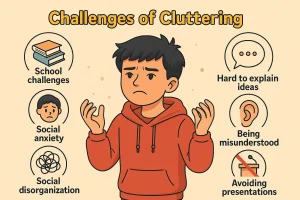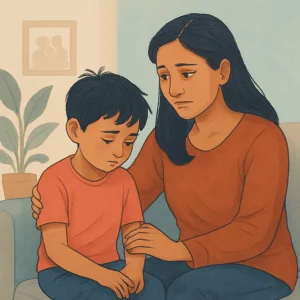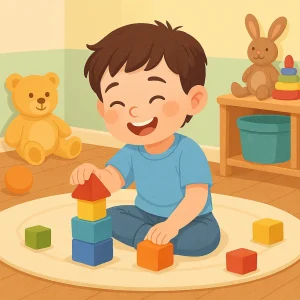Mindfulness Practices for Stronger Relationships
By Prapoorna M
Last Updated: July 31, 2024
In today’s fast-paced world, where moments flee before we can grasp them, mindfulness emerges as a beacon of hope, guiding us toward deeper connections and more meaningful interactions. At its core, mindfulness is about being present, fully engaged with whatever we’re doing at the moment — free from distractions or judgments. This practice, though simple in description, unfolds profound impacts on our relationships, nurturing stronger bonds with partners, friends, and family members.
Imagine conversations where you truly listen, understand, and connect with the other person, free from the clatter of past regrets or future anxieties. Mindfulness transforms these imaginations into reality, facilitating a space where every interaction becomes an opportunity for mutual appreciation and togetherness. It’s about recognizing the beauty in the ordinary, the depth in the every day, and the connection in the simple act of being together.
Understanding Mindfulness in Relationships
What Makes a Relationship Mindful?
Have you ever wondered what breathes life into relationships, making them thrive amidst the chaos of everyday life? The secret ingredient might be simpler and more profound than we think: mindfulness. A mindful relationship isn’t just a concept; it’s a practice, an art that’s cultivated through the embodiment of certain qualities. These are not lofty ideals but rather practical, everyday actions and intentions that can transform ordinary moments into extraordinary connections.
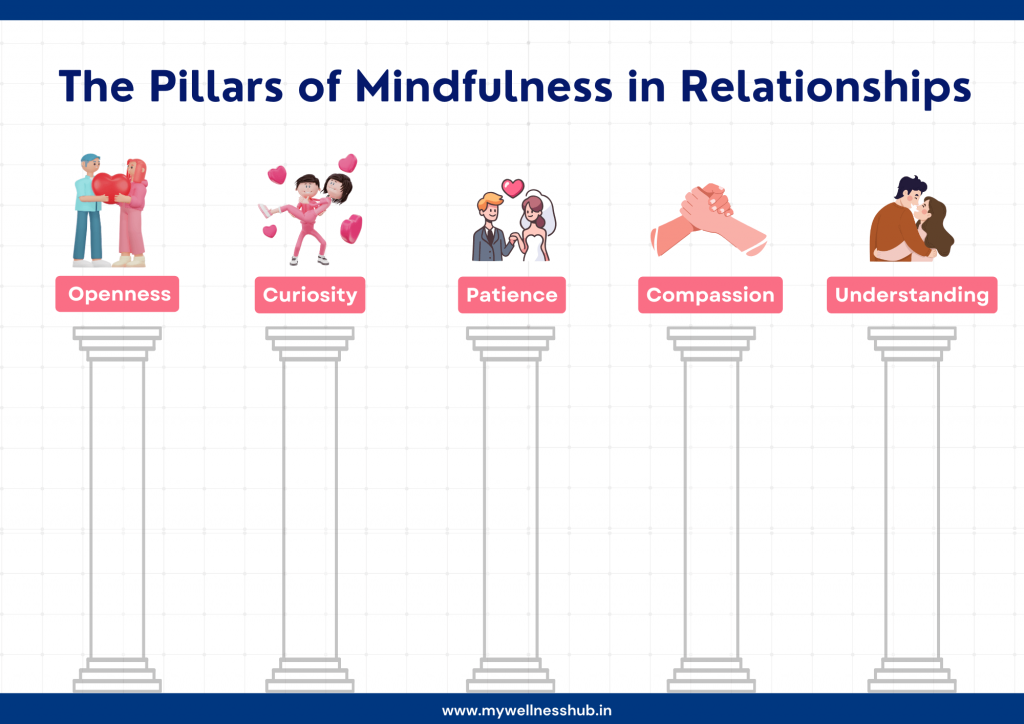
- Openness is the willingness to see beyond our preconceptions and biases to hear and understand our partner’s perspective truly. It’s about embracing the fluidity of relationships and recognizing that change is the only constant.
- Curiosity fuels our desire to know more about our partner – their thoughts, feelings, and experiences. It replaces judgment with fascination, leading to deeper understanding and connection.
- Patience is the quiet strength that allows us to navigate the ebb and flow of relationships without losing our center. It reminds us that not every problem needs an immediate solution, and sometimes, the best thing we can do is simply be there.
- Compassion is the bridge that connects our hearts, allowing us to empathize with our partner’s struggles and share in their joys. It’s the unconditional acceptance of them, just as they are, and the desire to alleviate their suffering.
- Understanding is the culmination of listening, empathy, and genuine interest in another’s well-being. It’s the foundation upon which mutual respect and love are built.
The Power of Presence
In the tapestry of human connections, being present is perhaps the most vibrant thread. Presence is not just physical; it’s a quality of attention, an intensity of being there that makes the other person feel seen, heard, and valued. It’s the opposite of distraction – a gift of your full self, undiluted by the past or future.
Being present enhances the quality of our interactions by ensuring that we are truly engaged with the other person. It’s the difference between hearing and listening, looking and seeing, touching and feeling. This level of engagement creates a space where intimacy flourishes, not just in romantic relationships but in all forms of connection we cherish.
Also Read: Effect of love and compassion in our life
The Benefits of Applying Mindfulness in Your Relationships
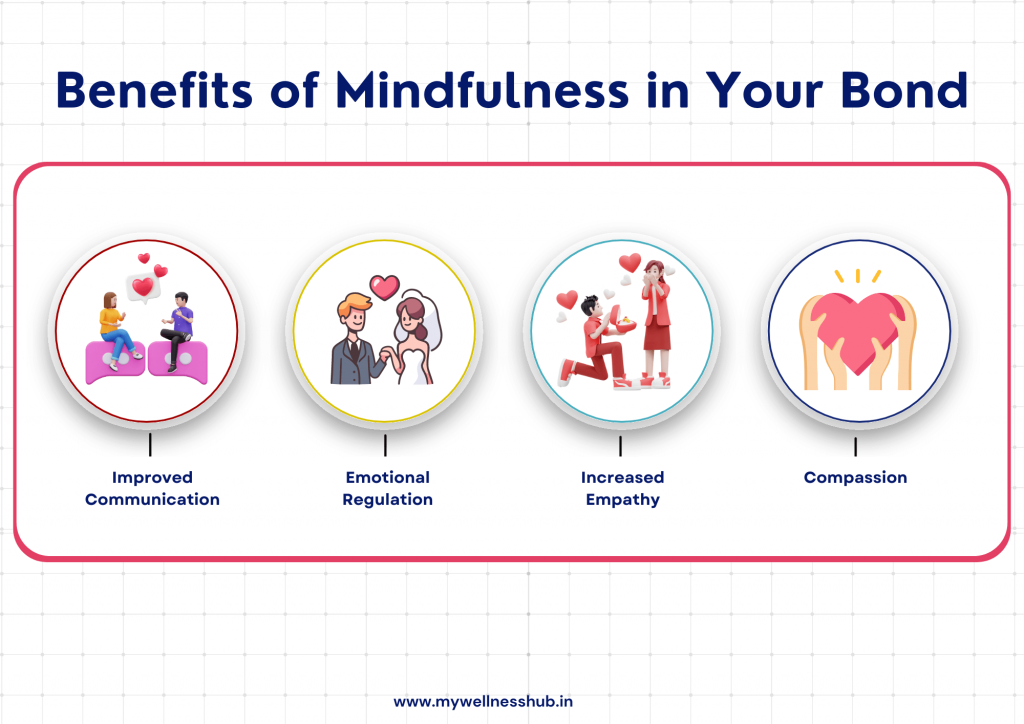
In the journey of nurturing relationships, mindfulness acts like a nurturing rain on a thirsty land, bringing with it a host of benefits that enrich and deepen the connection between individuals. The practice of mindfulness not only transforms how we relate to others but also how we perceive and understand ourselves within these relationships.
Improved Communication
One of the most profound benefits of mindfulness in relationships is the enhancement of communication. By fostering a state of presence, mindfulness enables individuals to truly listen—to hear not just the words spoken but also the emotions and intentions behind them. This level of attentiveness reduces misunderstandings and creates a safe space where both parties feel valued and understood.
When we communicate mindfully, we’re more likely to respond rather than react. This distinction is crucial—responses are thoughtful and considerate, whereas reactions are often impulsive and driven by unchecked emotions. Mindful communication encourages us to pause, reflect on our words, and choose responses that nurture rather than harm, thereby strengthening the bonds of trust and intimacy.
Emotional Regulation
Emotions are an integral part of our human experience, especially in the realm of relationships. Mindfulness equips us with the tools to navigate our emotional landscapes more effectively, promoting a balanced response to life’s ups and downs. Instead of being overwhelmed by our feelings, mindfulness helps us observe them with compassion and curiosity. This self-awareness enables us to manage our emotions better, reducing instances of emotional outbursts or withdrawal that can strain relationships.
Moreover, as we become more adept at regulating our emotions, we also cultivate a greater capacity for empathy. Understanding our emotional processes helps us recognize and empathize with the emotions of others, fostering a deeper connection and mutual support.
Increased Empathy and Compassion
At the heart of mindfulness is a profound sense of empathy and compassion—towards ourselves and others. By practicing mindfulness, we learn to view others’ actions and feelings through a lens of understanding and kindness. This does not mean excusing harmful behavior but rather choosing to approach conflicts or misunderstandings with a desire to resolve them constructively.
Empathy allows us to put ourselves in another’s shoes, to feel with them, and to offer support in ways that are meaningful and helpful. Compassion extends this empathy with a genuine wish for the well-being of the other person, even in challenging times. Together, these qualities can transform relationships from mere coexistence to profound connections that are sources of joy and growth.
Read more: The secret to a good marriage | Marriage tips for a long-lasting bond
Mindfulness Techniques for Every Couple
Navigating the journey of a relationship can be akin to sailing on vast, unpredictable seas. Moments of calm are cherished, but storms are inevitable. It’s during these times that the compass of mindfulness can guide us back to the tranquility of togetherness.
Daily Mindfulness Rituals
Mindful Listening: In the whirlwind of daily life, it’s easy to listen only with the intent to reply, not to understand. Mindful listening encourages us to fully engage with our partner’s words, emotions, and even silences, without judgment or distraction. This can be practiced during everyday conversations by focusing entirely on your partner, observing their body language, tone, and the emotions behind their words. Remember, sometimes the most profound love is shown by simply listening.
Expressing Gratitude: Gratitude is the sunlight of the soul, illuminating the best in us and our partners. Make it a daily ritual to express what you appreciate about your partner, no matter how small it may seem. This could be a simple “thank you” for their presence in your life, or acknowledging something they’ve done. These droplets of gratitude will water the seeds of love and appreciation, helping them to bloom beautifully over time.
Navigating Emotions Together
Emotions are the colors of our inner world, and how we manage them can paint our relationships with strokes of harmony or discord. Here are tips to navigate emotions mindfully:
- Recognize and Respect: When emotions arise, recognize them without judgment. Whether it’s joy, frustration, or sadness, acknowledging your feelings and those of your partner is the first step towards understanding them.
- Breathe and Reflect: Before responding to emotional situations, take a deep breath. This moment of pause can help you choose a response rather than react impulsively. Reflect on what is truly behind the emotion, and what message it carries.
- Communicate with Compassion: Share your feelings with your partner using “I” statements, such as “I feel sad when…” This approach focuses on your experiences rather than placing blame, paving the way for constructive, compassionate conversations.
Creating Moments of Togetherness
Mindfulness doesn’t always have to be a solemn, solitary practice. It can be a shared journey, a dance of souls seeking to be present together.
- Mindful Meals: Share at least one meal a day with no distractions—no phones, no TV. Focus on the experience of eating, the flavors, textures, and the company. It’s a simple practice that nourishes the body and the bond between you.
- Nature Walks: Take walks together in nature, observing the beauty around you with fresh eyes. Discuss what you notice, how it makes you feel, and enjoy the shared experience of being present in the natural world.
- Mindful Appreciation: Set aside time to appreciate each other mindfully. Share qualities you admire in your partner and moments you were grateful for their presence. This practice deepens the connection and highlights the positive aspects of your relationship.
These mindfulness techniques are like the gentle tides that smooth over the rough edges of our interactions, bringing us closer to the heart of our relationships.
Mindfulness Activities and Their Impact on Relationships
| Activity | Description | Expected Benefit |
|---|---|---|
| Mindful Listening | This involves giving your full attention to your partner’s words without forming a response in your mind or passing judgment. It means listening to understand, not to reply. | This practice enhances mutual understanding and empathy by ensuring that both partners feel heard and valued, leading to stronger communication and trust. |
| Expressing Gratitude | Make it a daily habit to verbally acknowledge and appreciate the positive aspects of your partner and your relationship. Highlight specific actions or qualities you are grateful for. | Regularly expressing gratitude strengthens emotional bonds and appreciation, fostering a positive atmosphere where love and respect flourish. |
| Navigating Emotions Together | Openly recognize and respect each other’s emotions without dismissal. Approach emotional discussions with honesty and vulnerability, aiming for mutual understanding. | This approach reduces conflict by promoting emotional regulation. It allows couples to handle emotional challenges more effectively, fostering resilience in the relationship. |
| Creating Moments of Togetherness | Deliberately engage in activities that both partners enjoy, ensuring that these experiences encourage being fully present and connected, such as shared hobbies, mindfulness exercises, or simply enjoying nature together. | These shared experiences deepen intimacy and enrich the relationship with meaningful memories, enhancing the couple’s emotional and physical connection. |
Know more: The secret to a good marriage | Marriage tips for a long-lasting bond
Implementing Mindfulness for Long-Term Relationship Success
Embarking on a mindfulness journey together can forge deeper connections and foster a more profound understanding within relationships. However, like any worthwhile journey, the path to a mindful relationship is paved with consistency and patience. Here’s how you can integrate mindfulness into your daily life, ensuring the flame of deeper connection and understanding continues to burn brightly.
The Importance of Consistency
Consistency is the soil in which the seeds of mindfulness grow. Just as a garden requires regular care and water to flourish, so does the practice of mindfulness need regular attention and effort. It’s about making mindfulness a habit, a natural part of your daily routine together. This could mean dedicating a few minutes each day to meditate together, practicing mindful listening during conversations, or simply sharing moments of gratitude.
Remember, it’s not about the quantity of time spent but the quality of presence within that time. Consistent, mindful interactions build a foundation of trust and understanding, transforming everyday moments into opportunities for connection and growth.
Patience: The Companion of Consistency
If consistency plants the seeds, patience waters them. The benefits of mindfulness in relationships don’t always show overnight. They grow gradually, enriching the relationship with depth and resilience. Patience reminds us to be gentle with ourselves and our partners, acknowledging that growth and change take time.
When faced with challenges or setbacks, patience offers a gentle nudge to persevere, to keep returning to mindfulness practices even when they seem difficult. It teaches us to appreciate the journey itself, not just the destination.
Integrating Mindfulness Seamlessly into Daily Life
- Start Small: Begin with simple practices that don’t feel overwhelming. This could be as easy as taking a few deep breaths together before starting your day or sharing one thing you’re each grateful for before going to bed.
- Use Reminders: In the hustle and bustle of daily life, it’s easy to forget our intentions. Setting reminders on your phone or placing mindfulness cues around your home can help keep you on track. A cue might be a special stone or a photo that reminds you to pause and breathe deeply, or to express appreciation for your partner.
- Mindful Activities: Choose activities you both enjoy and make them mindful by fully immersing yourselves in the experience. Whether it’s cooking a meal together, going for a walk, or listening to music, engage all your senses and be present with each other.
- Communicate Openly: Talk about your mindfulness journey together. Share what’s working, what’s challenging, and support each other in finding ways to overcome obstacles. Open communication strengthens the bond and deepens the mutual understanding.
- Celebrate Progress: Acknowledge and celebrate the moments when mindfulness enhances your relationship. Recognizing these milestones, no matter how small, can motivate you to continue your practices.
Explore more on our article Mistakes that Most People do Post Marriage
Your Journey to Mindfulness with Wellness Hub
As we wrap up our exploration of mindfulness practices for stronger relationships, it’s essential to recognize that this journey is uniquely yours, yet you’re not alone on this path. Wellness Hub stands as a beacon of support, guiding you through the vast landscape of mindfulness with resources, workshops, and counseling services tailored specifically to enhance relationships through mindfulness.
Discover Wellness Hub’s Resources
At Wellness Hub, we understand that every relationship is unique, and the journey towards mindfulness is personal and evolving. That’s why we’ve curated a diverse range of resources designed to meet you wherever you are on your mindfulness journey. From insightful articles and interactive workshops to personalized counseling sessions, our offerings are here to support and enrich your relationship through the principles of mindfulness.
Conclusion
As we wrap up our journey through mindfulness and its impact on relationships, we’ve uncovered how being present can truly deepen our connections with those we care about. We’ve seen that being open, patient, and understanding isn’t just nice in theory but can change the way we interact with others every day. Whether it’s talking more openly, managing our emotions better, or simply being there for each other, mindfulness offers simple yet powerful ways to bring us closer.
Remember, mindfulness in relationships is about taking small steps towards being more present and connected with our partners and loved ones. It’s a path that brings its own rewards, like stronger bonds and a deeper understanding of each other. So, let’s keep this journey going, embracing each moment with an open heart and a mindful spirit, knowing that every effort we make strengthens the ties that bind us together.
Frequently Asked Questions:
1. What is Mindfulness in Relationships?
Mindfulness in relationships refers to the practice of being fully present and engaged with your partner, without judgment. It involves qualities like open communication, patience, empathy, and understanding, helping to deepen connections and navigate challenges more effectively.
2. How Can Mindfulness Improve My Relationship?
Mindfulness can enhance relationships by improving communication, increasing emotional regulation, and fostering empathy and compassion. It encourages partners to listen deeply, express gratitude, and navigate emotions wisely, leading to stronger, more resilient bonds.
3. Are There Simple Mindfulness Practices for Couples?
Yes, there are many simple practices couples can incorporate into their daily lives, such as mindful listening, expressing gratitude, and participating in mindfulness-based activities together. These practices help create moments of connection and deepen the relationship.
4. Can Mindfulness Help Resolve Conflicts in Relationships?
Absolutely. Mindfulness aids in managing emotions and reactions, enabling individuals to approach conflicts with a calm, clear perspective. This approach fosters constructive communication and mutual understanding, helping resolve disputes more harmoniously.
5. How Often Should Couples Practice Mindfulness?
Consistency is key in mindfulness practice. Couples should aim to integrate mindfulness into their daily routines, whether through dedicated practices like meditation or by being fully present in everyday interactions. Regular practice strengthens the mindfulness muscle, benefiting the relationship over time.
6. Where Can I Find Resources on Mindfulness for Relationships?
Wellness Hub offers a wide range of resources, workshops, and counseling services tailored to enhancing relationships through mindfulness. Our offerings are designed to support couples at any stage of their mindfulness journey, providing tools and guidance for deeper connection and understanding.
7. Is Mindfulness Only for Romantic Relationships?
While mindfulness is particularly beneficial in romantic relationships, its principles can apply to all types of relationships, including friendships, family bonds, and professional interactions. Mindfulness fosters empathy, understanding, and effective communication, enriching connections with everyone in your life.
8. How Long Does It Take to See the Benefits of Mindfulness in a Relationship?
The benefits of mindfulness can be noticed almost immediately in the form of improved communication and reduced stress. However, deeper changes, such as increased empathy and stronger emotional bonds, typically develop over time with consistent practice. Remember, mindfulness is a journey rather than a quick fix, and its positive impacts on relationships continue to grow and evolve.
9. Can Mindfulness Help with Relationship Anxiety?
Yes, mindfulness can be particularly effective in managing relationship anxiety. By fostering a present-moment awareness, individuals can learn to observe their thoughts and emotions without judgment, reducing anxiety’s intensity. Mindfulness practices also promote emotional regulation, helping individuals respond to relationship stressors more calmly and thoughtfully.
10. Are There Any Mindfulness Exercises Specifically for Couples Facing Communication Challenges?
Definitely. Mindful listening is a key exercise for couples looking to improve communication. It involves fully focusing on your partner while they speak, without planning your response or passing judgment. Another helpful practice is the “mindful check-in,” where partners take turns sharing their feelings and thoughts, fostering openness and understanding. These exercises can significantly improve communication dynamics within a relationship.
About the Author:
Prapoorna Mangalampalli
M.Sc., M.A., (Dual Masters in Psychology & English) – Counselor (6+ years of experience)
Prapoorna armed with a passionate dedication fueled by dual Master’s degrees in Psychology and English, Prapoorna sheds light on and elevates human experiences. Over 6+ years of experience fuel her insightful approach to counseling, offering profound empathy and guidance across diverse areas like online, marital, relationship, child, family, and career counseling.
At Wellness Hub, she thrives in a team environment that values innovation, compassion, and achieving results for their clients.
Connect with Prapoorna to learn how she can help you or your loved one find their voice and build a brighter future.
Book your Free Consultation Today
Parent/Caregiver Info:
Client’s Details:
* Error Message

